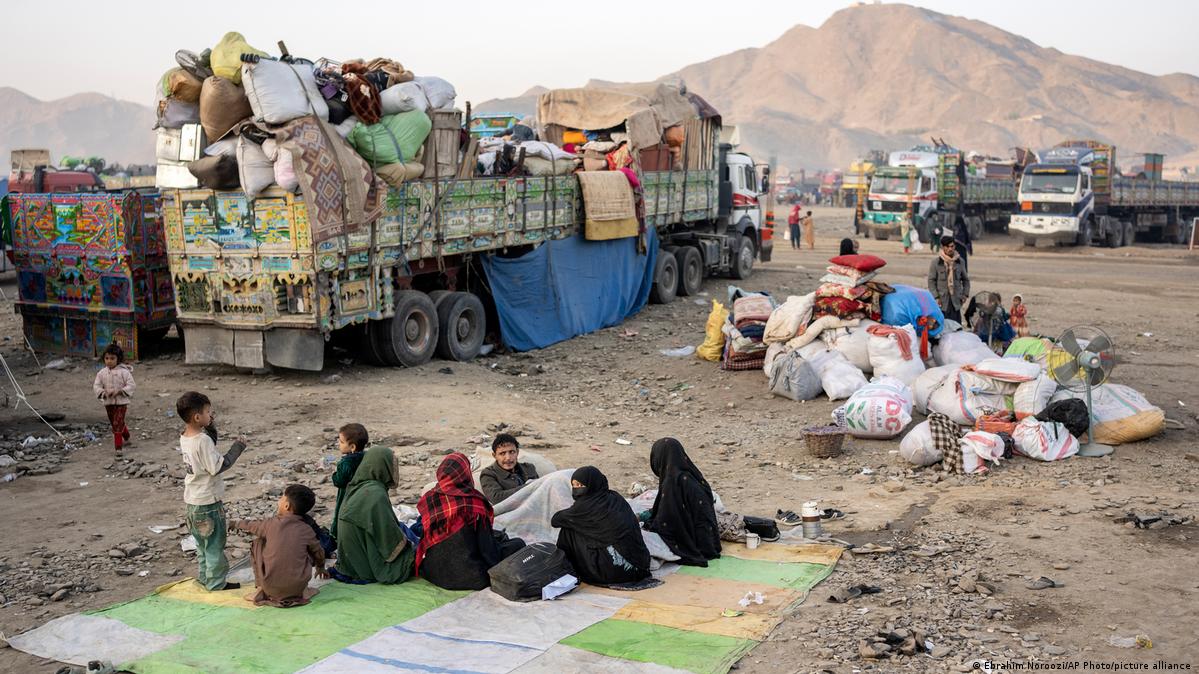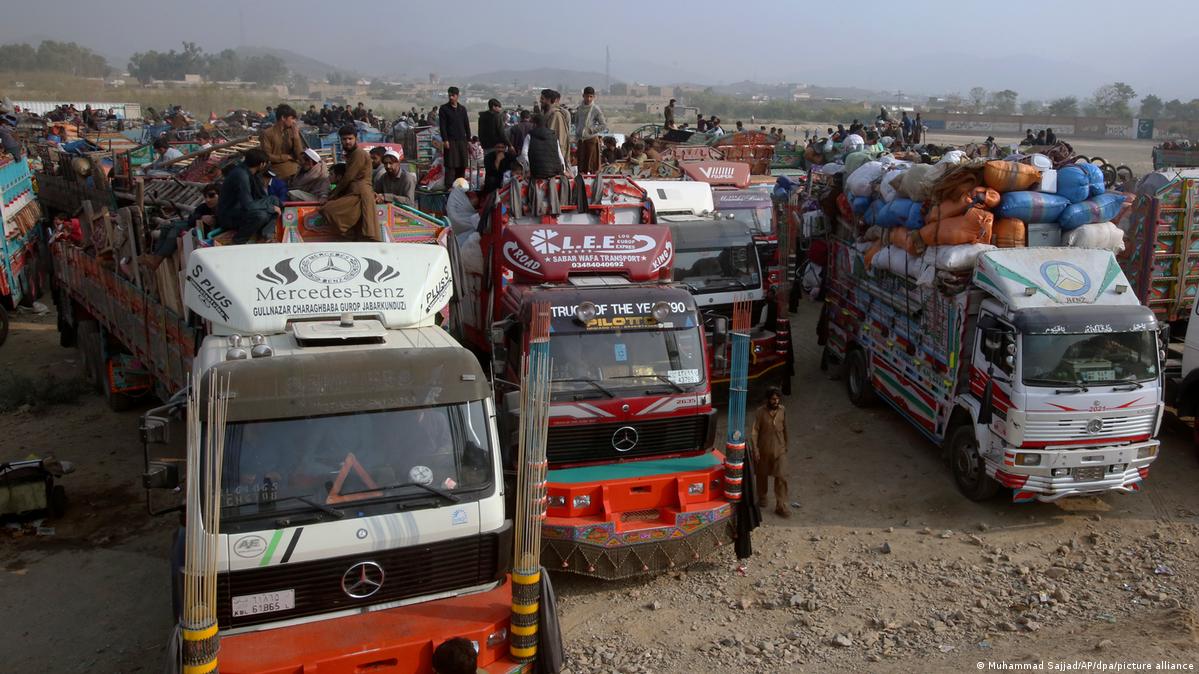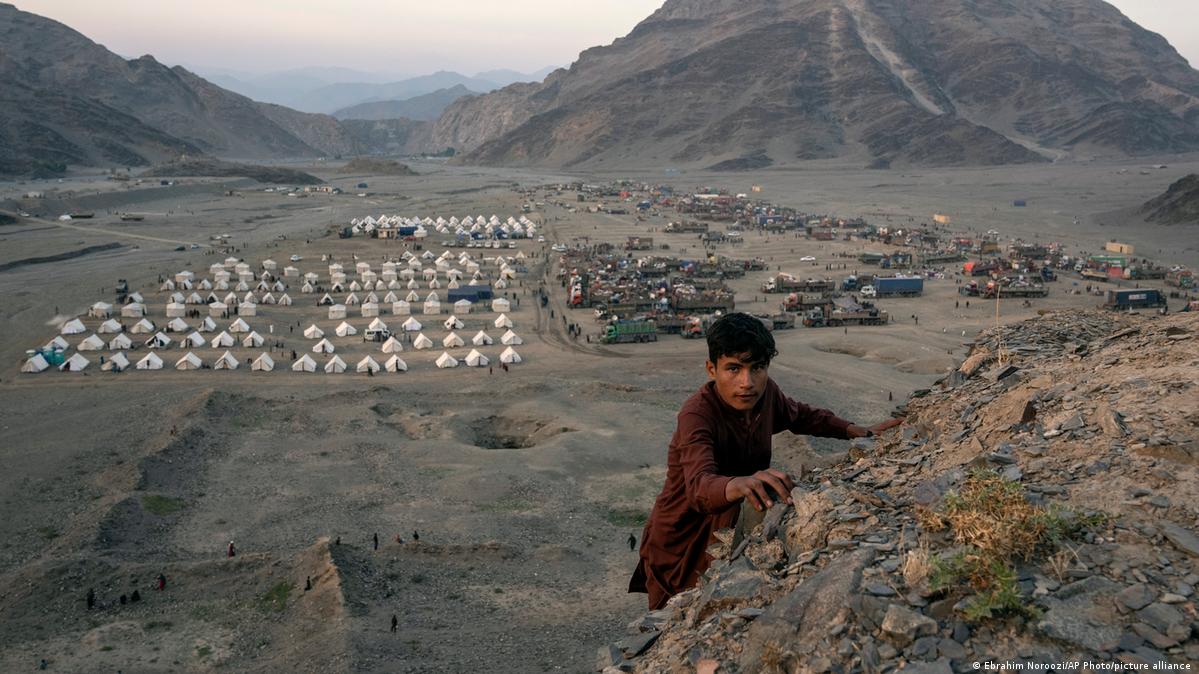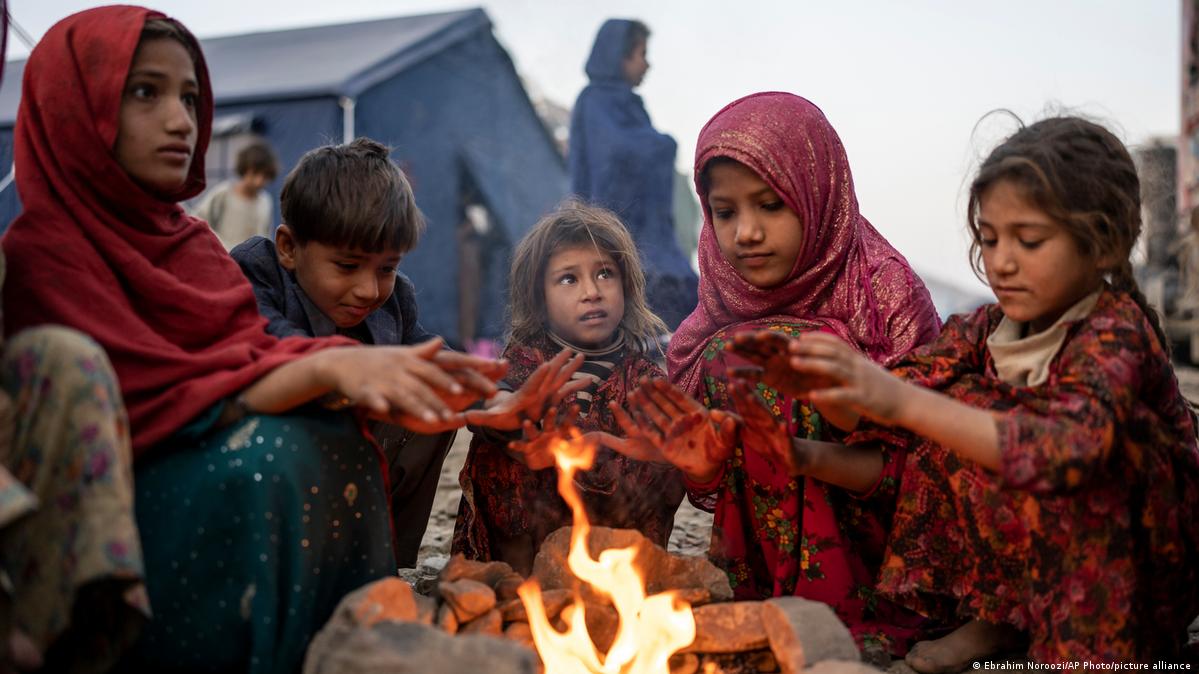Afghans in Pakistan facing deportation and uncertainty
-

An Afghan refugee girl collects rubbish in a camp near the Pakistan-Afghanistan border in Torkham (image: Ebrahim Noroozi/AP Photo/picture-alliance) -

Thousands of people arrived at the Torkham border crossing in north-western Pakistan after Pakistan announced that it had begun taking undocumented Afghans to camps for deportation. With around 4 million Afghans, Pakistan is home to the majority of the Afghan diaspora. According to government figures, 1.7 million of them are in the country illegally (image: Ebrahim Noroozi/AP Photo/picture-alliance) -

After the Taliban came to power again in 2021, around 600,000 Afghans fled to neighbouring Pakistan. But even before that, many Afghans had already moved there due to conflicts at home in the 1970s and 1980s. Many second- or third-generation Afghans have never even visited Afghanistan (image: Esmatullah Habibian/Middle East Images/abaca/picture-alliance) -

In the Afghan province of Nangarhar, just over the border from Pakistan, fully loaded trucks take Afghan families across the border (image: Muhammad Sajjad/AP/dpa/picture-alliance) -

The Taliban government set up two tent camps near Torkham on the Afghan side of the border to accommodate the masses of people arriving. Pakistan's government had set a deadline: illegal immigrants had to leave the country by 1 November. However, many Afghans are afraid to return to the country from which they fled (image: Ebrahim Noroozi/AP Photo/picture-alliance) -

Taliban fighters guard a registration point for the new arrivals from Pakistan. The organisation Reporters Without Borders has warned that around 200 Afghan media professionals are also at risk of deportation from Pakistan. After the Taliban took power, many Afghan reporters fled abroad, including to Pakistan, for fear of repression (image: Ebrahim Noroozi/AP Photo/picture-alliance) -

Several international aid organisations have expressed concern about the precarious situation in which many deported Afghans now find themselves. There is a lack of accommodation, food, drinking water, heating and hygiene facilities on the Afghan side of the border. Many people are sleeping in the open (image: Ebrahim Noroozi/AP Photo/picture-alliance) -

At night temperatures here drop to below 10 degrees Celsius. Pakistan's decision to summarily deport Afghans has been met with fierce criticism. The UN's Refugee Agency warns of an impending humanitarian catastrophe as winter approaches. Many families have nowhere to return to in Afghanistan and will be homeless (image: Ebrahim Noroozi/AP Photo/picture-alliance) -

The refugee protection organisation Pro Asyl has called on the German government to quickly take in Afghans who are particularly at risk. 'Many people had to go to Pakistan to complete migration procedures for Germany or other countries,' Alema Alema, ProAsyl's spokesperson for Afghanistan, said. 'The Federal Foreign Office must take steps to get them out fast now.' (image: Ebrahim Noroozi/AP Photo/picture-alliance)
https://qantara.de./en/node/43188
Link
To all image galleries
